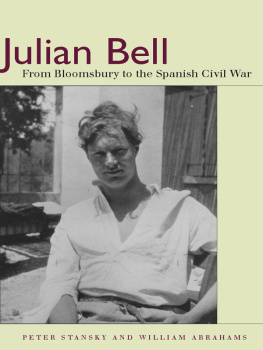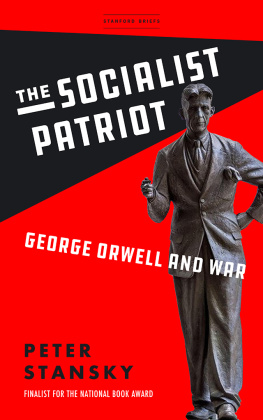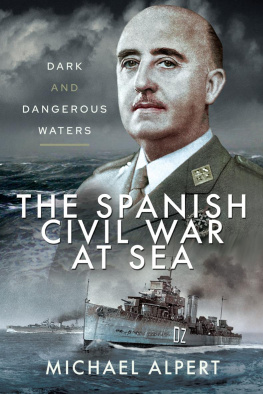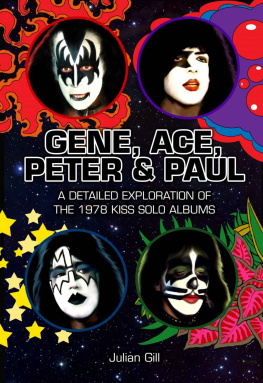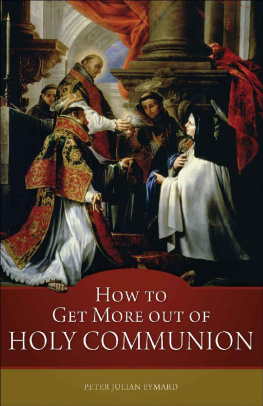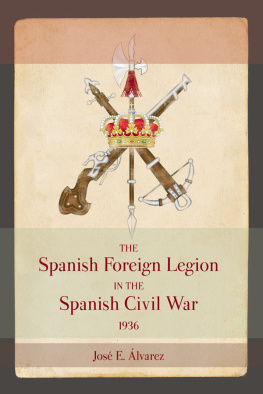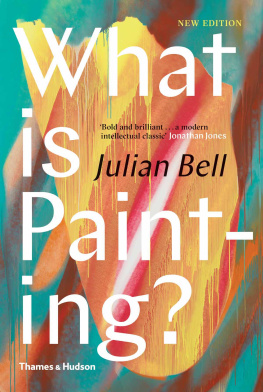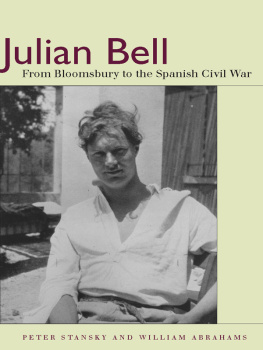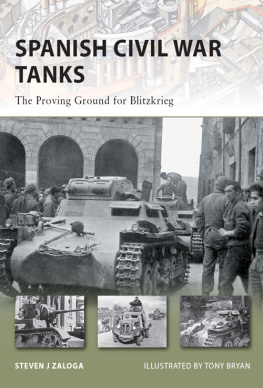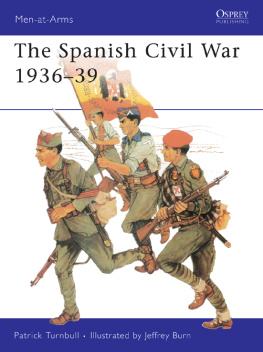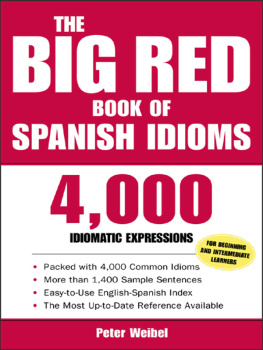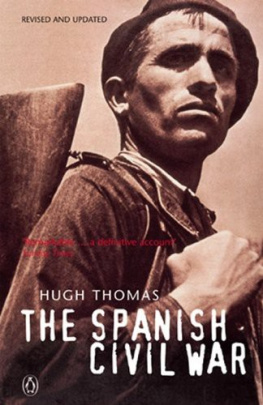Peter Stansky - Julian Bell: From Bloomsbury to the Spanish Civil War
Here you can read online Peter Stansky - Julian Bell: From Bloomsbury to the Spanish Civil War full text of the book (entire story) in english for free. Download pdf and epub, get meaning, cover and reviews about this ebook. year: 2012, publisher: Stanford University Press, genre: Art. Description of the work, (preface) as well as reviews are available. Best literature library LitArk.com created for fans of good reading and offers a wide selection of genres:
Romance novel
Science fiction
Adventure
Detective
Science
History
Home and family
Prose
Art
Politics
Computer
Non-fiction
Religion
Business
Children
Humor
Choose a favorite category and find really read worthwhile books. Enjoy immersion in the world of imagination, feel the emotions of the characters or learn something new for yourself, make an fascinating discovery.
- Book:Julian Bell: From Bloomsbury to the Spanish Civil War
- Author:
- Publisher:Stanford University Press
- Genre:
- Year:2012
- Rating:5 / 5
- Favourites:Add to favourites
- Your mark:
- 100
- 1
- 2
- 3
- 4
- 5
Julian Bell: From Bloomsbury to the Spanish Civil War: summary, description and annotation
We offer to read an annotation, description, summary or preface (depends on what the author of the book "Julian Bell: From Bloomsbury to the Spanish Civil War" wrote himself). If you haven't found the necessary information about the book — write in the comments, we will try to find it.
Julian Bell: From Bloomsbury to the Spanish Civil War — read online for free the complete book (whole text) full work
Below is the text of the book, divided by pages. System saving the place of the last page read, allows you to conveniently read the book "Julian Bell: From Bloomsbury to the Spanish Civil War" online for free, without having to search again every time where you left off. Put a bookmark, and you can go to the page where you finished reading at any time.
Font size:
Interval:
Bookmark:
2012 Peter Stansky. All rights reserved.
Excerpts from The Letters of Virginia Woolf, 1:18881912; II: 19121922; III: 19231928; IV: 19291931; V: 19321935; VI: 19361941, copyright 1975, 1976, 1978, 1979, 1980 by Quentin Bell and Angelica Garnett, reprinted by permission of Houghton Mifflin Harcourt Publishing Company. Excerpt from The Diary of Virginia Woolf, 1:19151919; II: 19201924 III: 19251930, IV: 19311935, V: 19361941, copyright 1977, 1978, 1980, 1982, 1984 by Quentin Bell and Angelica Garnett, reprinted by permission of Houghton Mifflin Harcourt Publishing Company.
No part of this book may be reproduced or transmitted in any form or by any means, electronic or mechanical, including photocopying and recording, or in any information storage or retrieval system without the prior written permission of Stanford University Press.
Printed in the United States of America on acid-free, archival-quality paper
Library of Congress Cataloging-in-Publication Data
Stansky, Peter, author.
Julian Bell : from Bloomsbury to the Spanish Civil War / Peter Stansky and William Abrahams.
pages cm.
Includes bibliographical references and index.
ISBN 978-0-8047-7413-0 (cloth : alk. paper)
1. Bell, Julian, 19081937. 2. Poets, English20th centuryBiography. 3. Bloomsbury group. I. Abrahams, William Miller, author. II. Title.
PR6003.E434Z855 2012
821.912dc22
2011008958
Typeset at Stanford University Press in 10.5/15 Adobe Garamond
E-book ISBN: 978-0-8047-7792-6
From Bloomsbury to
the Spanish Civil War
Peter Stansky and
William Abrahams

JULIAN BELL
MORE THAN FORTY YEARS after the original publication of Journey to the FrontierWilliam Abrahamss and my life of both John Cornford and Julian BellI decided to return to a reconsideration of the life of Julian Bell. I have observed with admiration that Sir Michael Holroyd has published subsequent versions of his great life of Lytton Strachey. (It originally appeared just after the decriminalization of homosexuality in Britain; hence now all could be told.) So did Noel Annan in the case of his intellectual biography of Sir Leslie Stephen. No doubt others have issued revised and expanded versions of a biography written earlier. But up to now I felt that I shouldnt revise an already published text. Also, if a new version were to be done, it would have to be on my own, as my coauthor had died in 1998. It would still, however, be his book as well.
My attitude towards the question of a new version changed in the summer of 2004. The previous year I had published Sassoon: The Worlds of Philip and Sybil. If less literary than some of my previous work, and far less concerned with radical figures, it combined my interests in society, politics, and art with a comparatively new interest in Anglo-Jewry. Now I was at work on quite a different project: the Blitz. While in England in the summer of 2004, doing research on that book, I participated in several events associated with what is considered the one hundredth anniversary of the beginning of Bloomsbury. In 1904 the four Stephen children, all in their twenties, scandalized their elders, after the death of their father, Sir Leslie, by leaving Kensington and taking a house together, without a chaperone, in the respectable but nondescript area of Bloomsbury, hence eventually and inadvertently creating a term in literary history. In Journey to the Frontier Billy Abrahams and I had written on what might be considered a late aspect of Bloomsbury, that is, its second generation as represented by Julian Bell, Vanessa Bells son and Virginia Woolfs nephew. I had also written on my own, many years later, about the very early years of Bloomsbury in On or About December 1910. In that study I explored as deeply as I could the Bloomsbury events that lay behind Virginia Woolfs famous and somewhat tongue-in-cheek remark, on or about December 1910 human character changed.
Julian Bell was on my mind in 2004 as I chaired a session largely concerned with him at the first International Virginia Woolf Conference to be held outside of the United States, at the Senate House of the University of London, appropriately in the Bloomsbury district. Patricia Laurence had just published her Lily Briscoes Chinese Eyes on Bloomsbury and China with much attention to Julians year and a half teaching at Wuhan University. A novel, K, had come out based on Julians affair there with Ling Shuhua. I also met William Beekman, a prominent Bloomsbury collector who had a particular interest in Julian and who owned many of the surviving letters that Virginia Woolf had written to him. Marking the anniversary was not only the Virginia Woolf conference but associated events, including a day visit to Charleston, most notably marked by a splendid interview with Olivier Bell. The climax of the celebration was a grand dinner at Kings College, Cambridge, Julians College as well as E. M. Forsters, Roger Frys, and John Maynard Keyness (and mine, where I did a second bachelor of arts after my American one). There Dadie Rylands had given Virginia Woolf the lunch immortalized in A Room of Ones Own.
It hadnt yet occurred to me that I might return to the study of Julian myself. There was a reception before the dinner, on the great lawn at the back of the Gibbs building at Kingsit was a ravishing summer evening, England at its bestwith a view of the Cam, of Clare College, of the building where Dadie Rylands had his rooms, and of Bodleys, where I had lived my first undergraduate year. There was a small display of photocopies from the Kings Archives to be looked at during the reception. Included was a letter from Duncan Grant to Julian saying that of course he must do what he thought best, but pointing out how much pain his participating in the civil war in Spain would cause his mother. And there was a copy of the few notes that Vanessa had jotted down about Julians life. She never really recovered from his death. These two documents, which had not been available years before, made me realize, as of course I would have known in theory, how much new material was likely to have surfaced in the forty years since Billy Abrahams and I had initially, with the extraordinary cooperation of Quentin and Olivier Bell, looked into Julians life. It suddenly occurred to me that when I had finished my study of the Blitz, I might well turn or rather return to the life of Julian Bell. I was going back to London by bus after the dinner, but just before hurrying to catch it, I had a message that Olivier would like to speak to me for a moment. She was wondering, in reaction to Patricia Laurences interest in doing a biography of Julian (some years later she would publish a pamphlet, The Violent Pacifist, about him), whether there should be another life of Julian. After all, as she kindly said, there was Journey to the Frontier. Pat Laurence had spoken to me earlier about this possibility, and I had urged her, should she so wish, to go ahead. When I had that conversation, it had never occurred to me that I might be interested myself. It was an idea, almost indeed a revelation, that came to me that evening on the lawn at Kings. I hurriedly indicated that possibility to Olivier and said that I would write to her about it. Indeed I did, although I knew that it wouldnt be for some time that I would turn to looking again at Julian in any committed way.
But gradually I began to do so. In the spring of 2006 I spent some time in New York, and at the Berg Collection of the New York Public Library I read the small archive of the papers of Ling Shuhua, Julians Chinese mistress, which Patricia Laurence had used in her work. That summer I spent a few days in the Archives at Kings College, read some material, and acquired a sense of how very much had come to light over the years. And then, in 2007, I spent February and March in Cambridge, much enjoying a residency at Wolfson College. I also reread
Next pageFont size:
Interval:
Bookmark:
Similar books «Julian Bell: From Bloomsbury to the Spanish Civil War»
Look at similar books to Julian Bell: From Bloomsbury to the Spanish Civil War. We have selected literature similar in name and meaning in the hope of providing readers with more options to find new, interesting, not yet read works.
Discussion, reviews of the book Julian Bell: From Bloomsbury to the Spanish Civil War and just readers' own opinions. Leave your comments, write what you think about the work, its meaning or the main characters. Specify what exactly you liked and what you didn't like, and why you think so.

